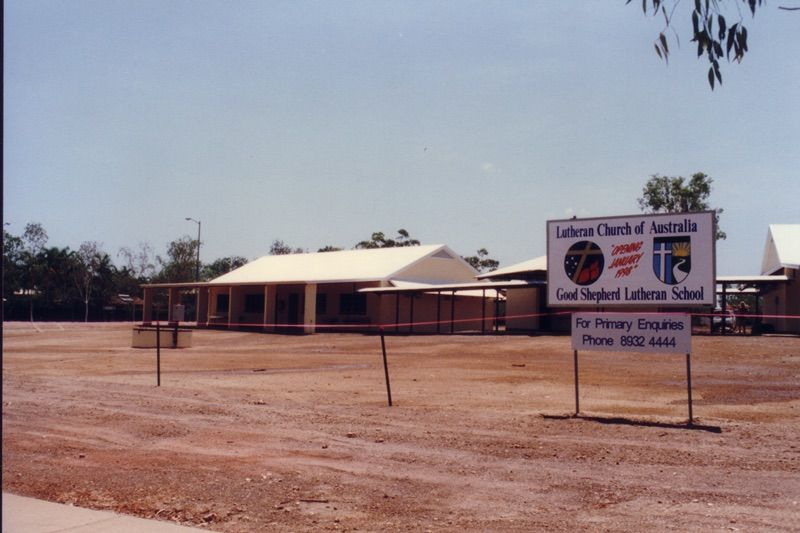Baby Boomers and Onwards - Time Stands Still for No One
Steven Brown, at our recent conference, sparked my interest in the eras of human change during his session, which encouraged me to revise for myself, once again, what they are and what they mean. The analysis of these have had books written about them as such analysis is complicated. I found some awareness of them was useful when trying to understand students and staff. Rather than being definitive it is thought provoking. However, if it strikes a note with you there is heaps of “stuff” on the internet which may (or may not) be helpful.
Ultimately staff and students are all individuals and are a product of their own personality and own particular environment.
I think it is worth a Principal having a working knowledge of these eras and how they may affect their staff and students. Though there is plenty of material on the Internet, I think it is important to make sure it is the product of Australians who obviously will focus on the effect these changes have had on the Australian population.
Two excellent Australian social commentators whom I have heard speak are Bernard Salt and Mark McCrindle, they give a well-considered Australian perspective. The Canberra Weekly has a good article on this topic.
Born between 1946 - 1964: Baby Boomers
Born between 1965 - 1979: Generation X
Born between.1980 - 1994: Generation Y known as Millennials. 2 Billion = 27% of world population
Born between 1995 - 2012: Generation Z known also as Centennials or Post Millennials. 2.4 Billion = 32% of the world population
Born after 2012. Alpha Generation
Following are noted observations of the characteristics of each. These are perhaps thought provoking but may not be 100% accurate. They are opinion but based on research.
Mark McCrindle makes an interesting analysis of leadership styles through the eras.
Pre- Baby Boomers (Known as The Builders): Controlling / Commander/Formal
Baby Boomers: Directing/ Thinker/ Structured
Generation X: Coordinating/Doer/Participative
Generation Y: Guiding/Supporter/Interactive
Generation Z: Empowering/Collaborator/Multi-modal
Generation Alpha: Inspiring/Co-creator/ Virtual
Baby Boomers 1946-1964 The world of the Baby Boomers is changeable and often chaotic. In Australia there were crowded schools, parents were often products of World War 2, Korea and also likely of the Great Depression. Even Boomers born in the 1960s could have parents from World War 2. Post World War 2 parents were wanting stability and security and many of them suffered trauma from these wars which could affect their parenting. Parents could also be immigrants from other countries but particularly, UK, Italy and Greece. Parents could be refugees - from Europe with the expansion of Communism.
The White Australia Policy during this time moved towards its abolition which started in 1966 with it being finally fully abolished in 1973. In1967 the successful referendum was held to change the constitution so Aboriginal and Torres Strait Islanders would be counted as part of the Australian population.
Schooling for Boomers was mostly quite authoritarian but this eased a little towards the end of their childhood era. It is salutary to note that a boomer born in 1960 may not have left school until 1977 or if born in 1964 may not have “valede” until 1981. I had not thought about it, but much of my teaching for the first 9 years was to Baby Boomers, even though I was one myself. But, as always, one should beware of social analysis being too prescriptive.
As someone born in 1951, I contend that my first decade was very different to a person born in 1960. I was born in England after World War 2 into a world of post war hardship signified by extreme food rationing.
The Korean War, in which Australia was involved, had started in June 1950. Baby Boomer children were to do as they were told, and many were expected on occasions to be seen and not heard. Discipline at school and at home was reasonably hard. Money was tight for most families and people were desiring stability, particularly as the adults of this era had been through World War 2 and often the Great Depression. Oh by the way Australia didn’t get television until 1956!
But by August 1962 Australia was involved in the Vietnam War. Unlike other wars this was to become a TV war reported nightly to the Australian Citizens. Of course few people had TVs in 1956 but by 1965 it was common place. 1956 reception was often a little “iffy” but much better by 1965, though not colour until March 1975. Places which were remote e.g. Alice and beyond, lagged behind in these critical developments.
On November 22, 1963, President Kennedy was assassinated. I remember the evening well as my older brother and I walked the half mile to the Blackburn shops to get the newspaper and to visit our only fast-food outlet-the fish and chip shop! No Maccas, no Kentucky Fried! I asked my brother what assassinated meant - these days with more TV I think I would have known. By the way we didn’t have TV. He informed me and I was in disbelief.
By 1967 my brother was registering for National Service.
The cautious years of the 1950s were replaced by the 1960s, fired by great musicians such as the Beatles whose first hit “Love Me DO” struck the world in late 1962. The Beatles visited Australia in 1964 causing absolute “Beatlemania” which included longish hair, causing exasperation in many schools insisting on a moderate hairstyle. Though Elvis never toured Australia he began his singing with Sun Records and was an international sensation by 1956. With TV, the American influence on Australia increased exponentially. There was so much of it. I know that over my lifetime there has been a genuine change in the Australian accent with our old accent gradually dying out - TV a major contributor. I still say, “Fair Dinkum”, but it has largely dropped out of the Australian way of speaking.
Back to the Vietnam War.
As a teenager in 1964 I fully expected that it would be my duty to fight in Vietnam. My Father had gone to World War 2, my Grandfather to World War I and this was my war. That seemed to be just what would happened. Our cadet corps across the country were seen by us as step I in preparation for war. We were issued at the start of the year with fully functioning .303 rifles, with the rule not to travel on public transport with the bolt in, verbally instructed to us. On cadet camps, when issued with blank ammunition, we were warned not to fire it at anyone because blanks could kill at 8 paces! We learnt to fire the rifle correctly, how to strip an Owen Machine carbine and a Bren Gun in quick time and on a cadet under officer’s course (CUO’s) in 1967 at Puckapunyal army training ground we learnt the basics of jungle warfare, taught by soldiers who had returned from Vietnam. The security of Australia was seen by many as a genuine concern.
Then the Australian Prime Minister Harold Holt drowned and the anti-war movement began to really warm up. Well before I got to University (1970) it was in full swing, as indeed was the Flower Power Hippy Movement and, as distinct from the compliant 1950s the revolution was well and truly on. Everything was “up for grabs”- it was the age of rebellion against governments, churches, convention, authorities, everything - as Bob Dylan predicted in the earlier 1960s “The Times They Are A Changing”.
One would be more than naive to think that this decade of upheaval wasn’t going to affect everyone in some way, particularly families with parents, children, schools and certainly teachers. And for a Principal not to have an appreciation of this would be thorough stupidity. Some did swim hard against the tide, sometimes loosing and being swept out to an education void.
What happens in society really does affect parents, students and teachers. As a Principal you have to be across how society has changed. Broadly speaking I did find these eras could, but not always, be a partial explanation as to how teachers felt or acted and I found an understanding of this helpful. The same goes for parents and students. Baby Boomer parents, it seemed to me were really concerned at their children achieving, sometimes unrealistically. Parents born in the later Baby Boom were more likely to want their children to be happy. To ignore this change in parental attitude could definitely have a negative effect on enrolments.
The following are some brief observations of the eras. The precise dating of the Eras does vary a little depending on the writer.
Generation X 1965-1979
A Gen Xer, if they left school at 17 could be leaving somewhere between 1982 and 1996.So it is likely that AISNT principals will have taught some Gen Xers.
Gen Xers would possible have experienced an era of unemployment. When I left the Country Town of Maryborough, Victoria, at the end of 1985 youth unemployment was 19%. “You’ve gotta get a job” was a big concern for parents. The Canberra Weekly noted that the Xers watched their parents work hard and remain loyal to one company which often resulted in a degree of dissatisfaction. But this encouraged the Xers to seek a healthy balance between work and play.
Gen Ys or Millennials 1982-1994 Gen Ys, if they left school at 17 would be leaving in 1999 to 2011.They are also known as Digital Natives. Technology is part of their everyday lives. Screens are just part of their lives as is perhaps switching things on and off. They are more likely to seek rewards and praise. They are ambitious and enjoy collaboration. They also seek a work-life balance. It was the era of the iPod and the BMX bike. Children of this generation have mostly been raised by Baby Boomers.
Gen Z 1995- 2010 If they left school at 17 they would be leaving in 2012 to 2027! This is the first generation to not remember a time without the internet. The younger Gen Zs will not remember a time without smartphones or social media. During this era Teslas became known as did folding scooters and Spotify.
Gen Alpha 2011-2024 This is the first Generation to be entirely born in the new millennium with its whole untried vista. Instagram came on deck near their start (2010) and the iPad became available. So many of this generation could turn on an iPad and use it before they could read and write in a traditional manner. Whilst they have all the benefits of this exceptionally changing digital age they also face yet uncontrolled negatives. All my grandchildren are in this era and I’m amazed at how freely they give Siri orders and she dutifully responds. It is also the era of the electric scooter and the electric, “wheel only” uni- cycle. Covid will likely influence their upbringing. What will be next and how will it influence these young people?
Written by Chris Tudor



